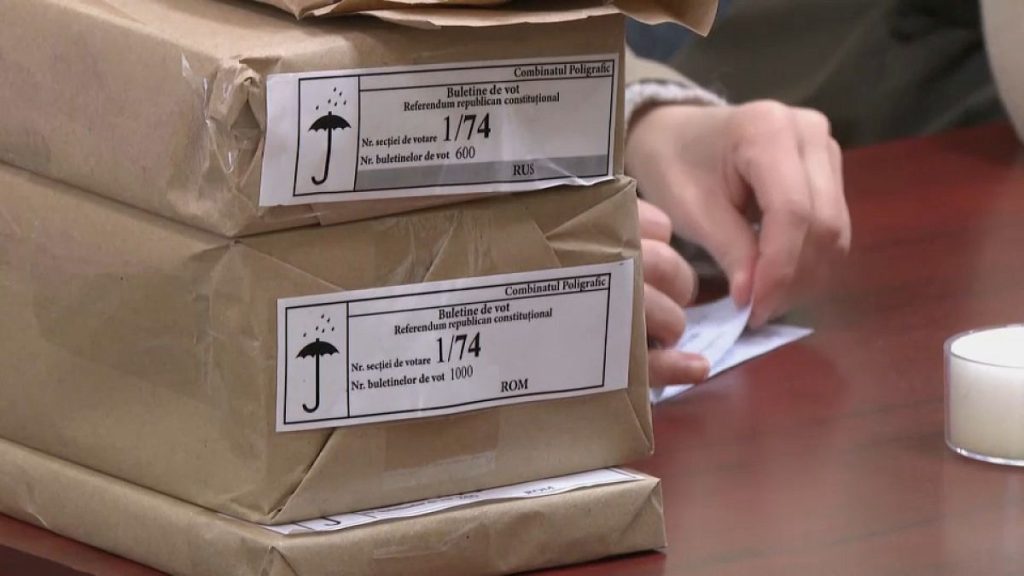Polls have opened in Moldova with citizens voting on two key decisions: the next president and whether the country should join the European Union. While around 60% of Moldovans support EU membership, a minimum turnout of 33% is required for the referendum to be valid. Most Moldovans desire higher wages and an improved quality of life, but opinions are divided on whether EU accession will bring the promised benefits. Some are skeptical, citing the lack of progress in previous years, while others believe it will enhance living standards and increase salaries, stemming the flow of young people leaving the country in search of better opportunities.
The current minimum wage in Moldova is one of the lowest in Europe, leading to a record number of Moldovans leaving the country in search of better prospects. More than 200,000 citizens have emigrated in the last four years, with data indicating that by 2030, the number of Moldovans born abroad may surpass those born in the country. The push for EU membership is seen as a crucial moment for Moldova, with the choice between aligning with the West or succumbing to Russian influence. Incumbent president Maia Sandu, a strong supporter of EU accession, urged voters to back the move during her re-election campaign, emphasizing the importance of not missing the opportunity to join the European Union.
Interference from Russian-backed campaigns has been a cause for concern in the lead-up to the referendum. Moldovan authorities warned of significant amounts of Russian funds being used to buy anti-EU votes, with an estimated total of €100 million spent on undermining the electoral process. Pro-Russian figures, such as oligarch Ilan Shor, have openly offered money for votes against EU integration. The fear of destabilization attempts and coordinated disinformation campaigns designed to influence or suppress the vote has prompted calls for vigilance from Moldova’s leaders. The Central Election Commission has set up over 2,000 polling stations for citizens to cast their ballots, both within Moldova and abroad.
The push for EU membership in Moldova has been a long-standing aspiration, with discussions around joining the European Union dating back nearly two decades. Moldovans hope that alignment with the EU will bring economic opportunities, increased living standards, and a brighter future for the country. Proponents of EU integration argue that the move is necessary to propel Moldova forward and protect it from being pulled back into the orbit of Russian influence. The forthcoming referendum will determine whether the majority of Moldovans support EU membership and whether the required minimum turnout is achieved for the vote to be considered valid, amidst concerns of foreign interference.
The choice between EU integration and maintaining ties with Russia is a significant decision for Moldova, impacting the country’s future trajectory and relationships on the international stage. The desire for increased wages, improved quality of life, and opportunities for economic growth are driving factors behind the push for EU membership. The specter of outside interference in the electoral process, including significant financial investments to sway anti-EU sentiment, adds a layer of complexity to the referendum. Moldova’s future direction hinges on the outcome of the vote, with citizens tasked with deciding whether to embrace the European path or remain tied to Russian interests. Vigilance and participation are crucial in ensuring the integrity of the referendum process and upholding democracy in Moldova.


